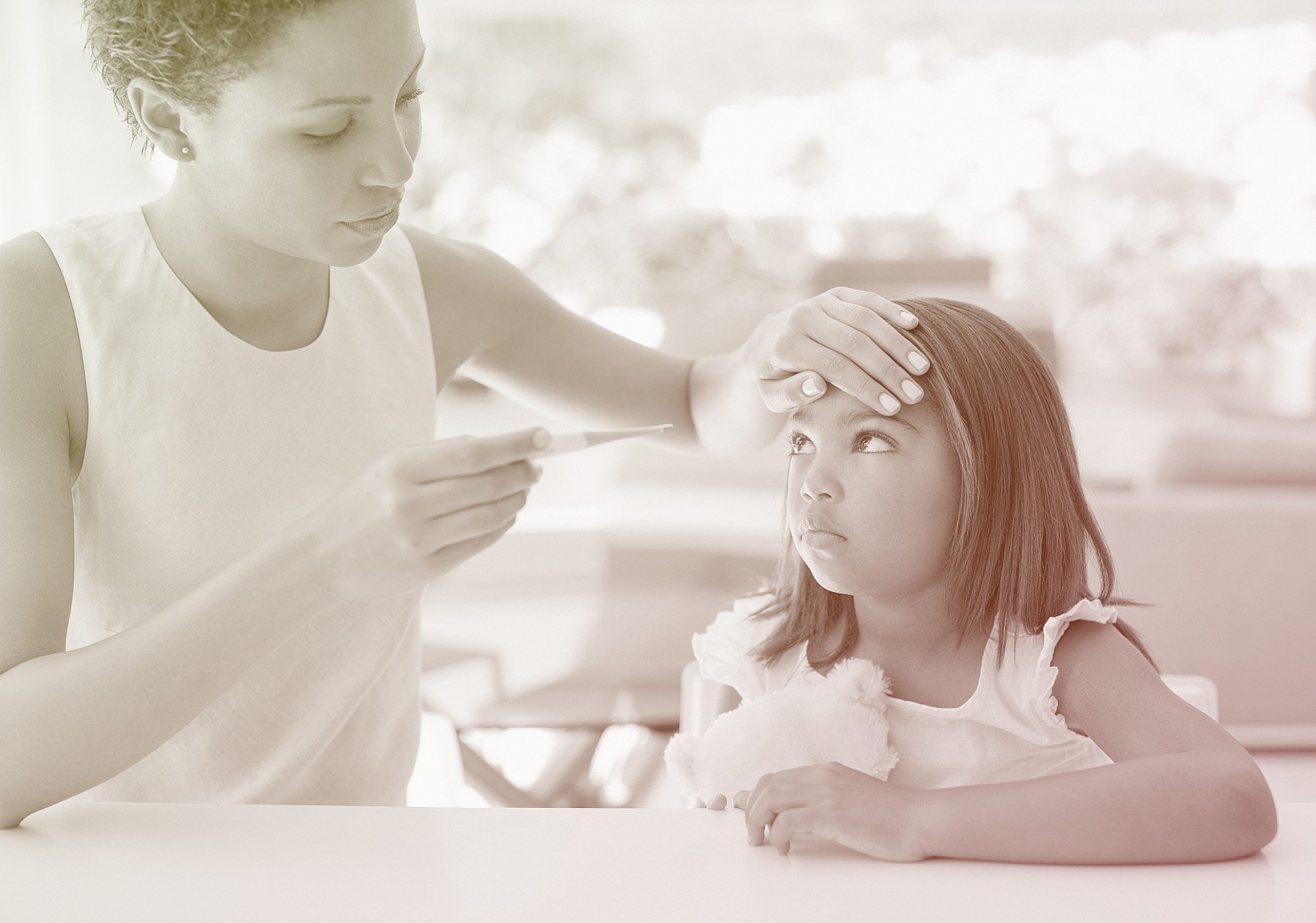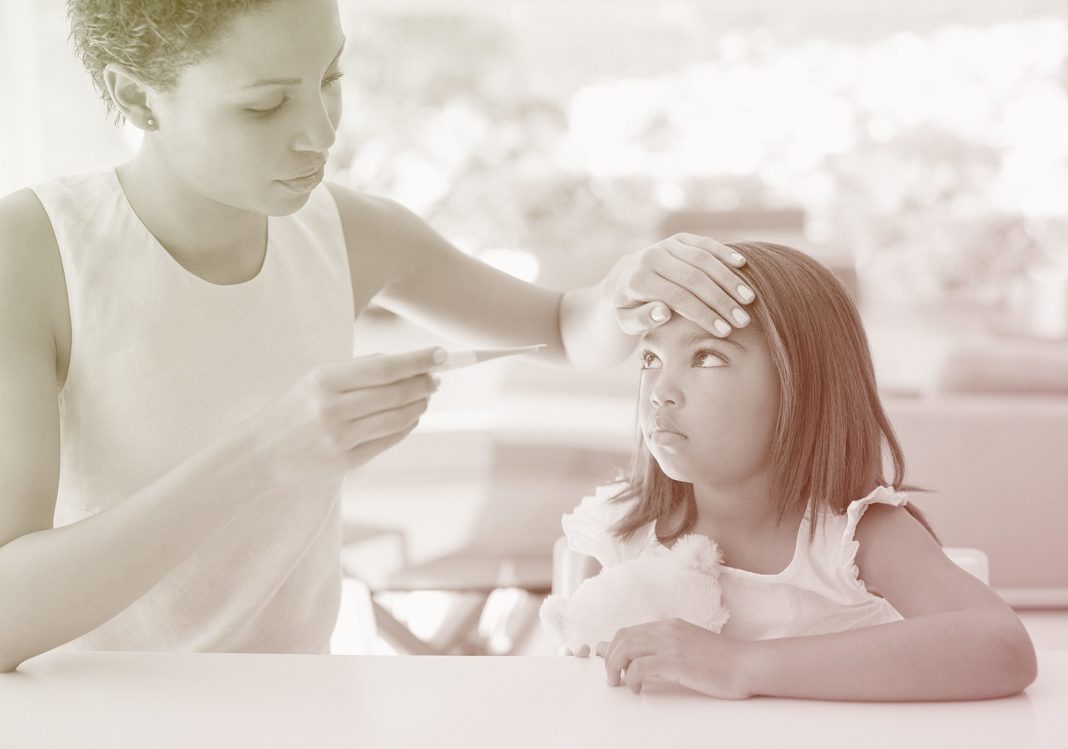
Allergy sufferers experience a wide range of symptoms, ranging from itchy eyes and runny nose to sore throat and congestion. The symptoms can occur throughout the year or seasonally, depending on the cause of your allergies, and they can negatively affect day-to-day activities, says Sanjeev Jain, M.D., a board-certified allergist and immunologist at Columbia Allergy. But whether your child is allergic to pet dander or pollen, you may wonder if they can have a low-grade fever with allergies. Here’s what parents need to know.
Can Allergies Cause a Low-Grade Fever?
Allergies happen when the body overreacts to a substance it considers harmful. As a result, the immune system produces antibodies and histamine to fight off the perceived invaders, causing an inflammatory reaction that makes you feel downright lousy.
Even though seasonal allergies are sometimes called “hay fever,” they don’t usually trigger a rise in temperature, says Natasha Burgert, M.D., a board-certified pediatrician for Pediatric Associates in Overland Park, Kansas. Fevers are more likely to be viral or bacterial in nature, adds Dr. Jain.
It’s important to note that your child's immune system works overtime to fight off allergies, which increases their susceptibility to colds, sinus infections, or viruses. Your kid can definitely run a fever while suffering from allergies, but their high temperature won’t actually be caused by the allergies.
My Child Has Allergy Symptoms with a Fever—Now What?
Fevers aren't caused by allergies, so if your child experiences a rise in temperature, something else is likely to blame. For example, viruses like the common cold or influenza cause fever as the immune system struggles to fight them off. Bacterial infections like strep throat might also lead to fever—and so can ear infections, heat exhaustion, urinary tract infections, and more. Also, COVID-19 can present with fever and allergy-like symptoms—mainly runny nose, sore throat, and coughing.
Always let your pediatrician know about any worrisome symptoms in your kid. They might need to treat the underlying cause of their fever with antibiotics. If applicable, they might also recommend a coronavirus test.
































